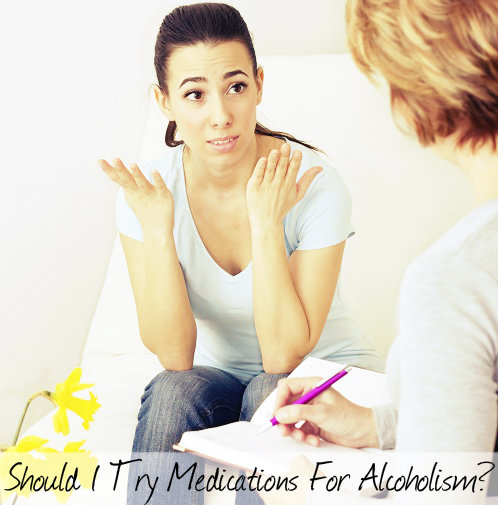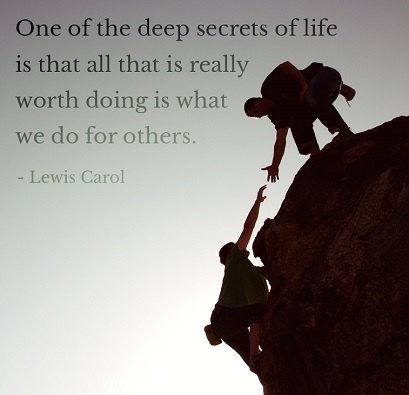15 Oct 2014
Should I Try Medications For Alcoholism?
There has long been a prevalent philosophy of addiction treatment that includes total abstinence. Of course it makes sense for an alcoholic to abstain totally from drinking, but some also say you should avoid drugs wherever you can, including medications. Ideas are changing, though, thanks to research.
We now know much more about addiction and its effect on the brain than ever before. Researchers have developed medications that may be able to help you recover more effectively and stay sober more easily. Not all agree that drugs are the way to go, so what should you do?
What To Do When Deciding Whether Or Not To Try Medications For Alcoholism:
Read Up On Drugs For Treating Alcoholism
 The first and best thing you can do when it comes to making a choice about medications is to read and learn. Knowledge is power, so read up on the drugs available to treat alcoholism and learn more about each one. Armed with the information, you can make a better choice and have a more intelligent discussion with your doctor and therapist.
The first and best thing you can do when it comes to making a choice about medications is to read and learn. Knowledge is power, so read up on the drugs available to treat alcoholism and learn more about each one. Armed with the information, you can make a better choice and have a more intelligent discussion with your doctor and therapist.
3 Common Alcoholism Treatment Drugs
Here is some introductory information to get you started learning about three of the most common drugs:
- Antabuse – The generic name for this drug is disulfram, and it has been around for decades helping alcoholics stop drinking. If you take the medication as directed and try to drink, you will get very sick. Symptoms are short-lived and include nausea, vomiting and headaches.
- Naltrexone – Naltrexone blocks the high, or pleasant feeling, that you normally get when drinking alcohol. If you take it as directed, you will have no reason to drink.
- Acamprosate – This is one of the newer drugs on the market for alcoholics and it works by helping you to resist the urge to relapse. You are only supposed to take this medication after you have given up drinking. It reduces some of the long-term withdrawal symptoms that would make you turn back to drinking.
Discuss Treatment Medications With Your Doctor And Therapist
You should always discuss your treatment plans with those experts you trust to your care. Of course your doctor will be the one to prescribe a medication, or your psychiatrist if you have one. Discuss the pros and cons with both your prescribing doctor and your therapist or drug counselor. These professionals can help you make an informed decision about whether alcoholism medications are right for you.
The most effective addiction treatment plan is one that is tailored to your specific needs. You, along with the professionals who know you and your history, are best qualified to develop a plan, whether or not it includes medications.
Never Rely Solely On Medication To Overcome Your Addiction
If you decide to give one or more of these medications a try, keep in mind that none of them is designed to be used alone. All are approved to treat alcoholism in conjunction with psychosocial therapy. This means that you need to use other treatment methods, including behavioral therapy, psychotherapy and support groups together with drugs for effectiveness. Drugs alone are not the answer because there is no simple cure for alcoholism or any other type of addiction.
The ultimate choice as to whether or not you try drugs to treat your addiction is up to you. In order to make the best choice for yourself and your future, make sure you are educated about the options, discuss with your medical and counseling professionals and make medications just one part of an overall treatment plan. If you follow these steps and make the commitment to stick to your plan, you stand every chance of a successful recovery.
See Other Drug And Alcohol Rehab FAQ’s
14 Oct 2014
Are You Addicted To Love?
Process addictions, also known as behavioral addictions, don’t always get the same kind of attention as chemical dependencies, but they can be just as serious. Love addiction, which should not be confused with sex addiction, can prevent you from having normal relationships or from ever being satisfied with one. If you are constantly obsessing over one person, a fantasy of your true love or a fantasy relationship, you could be suffering from a love addiction. It’s time to break the cycle.
What Is Love Addiction?
Love addiction is a process addiction. This means that instead of compulsively using a drug or alcohol, you are addicted to a behavior, a feeling or a person. In the case of love addiction you may be addicted to the feelings of infatuation or early love and go through a string of short-term relationships.
 Or you might be addicted to your partner and the way he makes you feel, refusing to break it off even if the relationship takes an unhealthy turn. It could even be platonic love that has you hooked. The bottom line is that you obsess over it. The feelings you get from love, infatuation and fantasy take over your life.
Or you might be addicted to your partner and the way he makes you feel, refusing to break it off even if the relationship takes an unhealthy turn. It could even be platonic love that has you hooked. The bottom line is that you obsess over it. The feelings you get from love, infatuation and fantasy take over your life.
At the root of a love addiction is the idea that another person, either real or imagined, can make your life perfect and love you unconditionally. This idea may result from a past history of being abandoned or not being loved enough. It may be that your parents didn’t meet your needs for love and affection. Now, as an adult, you have low self-esteem and look for validation from an outside source when really you should be your own validation.
How Do I Get Over A Love Addiction?
Love addiction is unhealthy because it means that you place unrealistic expectations on others, you fail to take care of yourself and you fail to develop a healthy relationship of mutual respect and love. If you recognize the signs of love addiction in your actions, thoughts and feelings, it’s time to take action and turn things around. Only then will you learn to love yourself and give yourself the chance to have a real relationship.
Steps To Get Over Love Addiction
Here are some steps to take:
- Stop, analyze and assess – Take a step back from your relationships and really think about your behaviors. Make a list of the ways in which you behave inappropriately in your relationships. Consider how you feel and how you make your partner feel. Also think about past relationships and look for common patterns.
- Take responsibility for your own happiness – As a love addict you rely on someone else to make you happy. You think that you need a perfect partner to make your life complete. This is a mistake. You are the only one who can make you happy. Accept that now and begin to act on this truth.
- Consider therapy – There is a good chance that your obsession with love is related to your past. Working with a therapist can help you come to terms with past relationships and how they have impacted you. Sometimes it takes the assistance of a professional to really heal.
- Be prepared for imperfection – As you feel ready to start up a new relationship be ready for the fact that it won’t be perfect. You can chase a perfect partner your whole life, but you’ll never find him. Prepare yourself to fall in love with someone who is imperfect, but perfect for you.
Breaking the habit of love addiction isn’t easy, but it will make your life infinitely better. Only when you begin to accept and love yourself, and reject the idea of a perfect fantasy partner, will you be ready to enjoy real love.
29 Sep 2014
How To Use Activities To Help Overcome Addiction
It may sound too simple, and nothing can replace a good addiction treatment program, but engaging in new activities and hobbies can be a powerful way to help overcome addiction. To truly get sober and into successful recovery from your addiction, you need high-quality care from experienced professionals, support from friends and loved ones, and hard work on your part. But there are also tools and resources to help support your recovery and these can make all the difference. Consider getting involved in a new activity to aid your sobriety.
Avoiding Relapse
Recovering from addiction means facing a long-term battle with urges to use again. No matter how far you get in your sobriety, there will always be a little voice telling you to turn back to substances. It may not be there every day, but it will be there at your low points and when you feel your worst. There are many professional and useful suggestions for how to resist these urges: know your triggers and avoid them, cut ties with old friends, lean on sober friends, keep up with therapy and stay healthy. These are great ideas, but add one more: get involved with new activities.
Hobbies For Recovery
 Hobby is a quaint and old-fashioned word, but it refers to doing something, anything, that is meaningful to you. It could be something you used to do, but lost sight of during your substance abuse period. Or it could be something entirely new, something you always wanted to try, but never got around to doing.
Hobby is a quaint and old-fashioned word, but it refers to doing something, anything, that is meaningful to you. It could be something you used to do, but lost sight of during your substance abuse period. Or it could be something entirely new, something you always wanted to try, but never got around to doing.
As an addict you turned to drugs or alcohol as a source of meaning in your life. Maybe it filled a void you always felt you had. Maybe it helped you to suppress trauma that has been chasing you since childhood. Maybe you were lonely and being high or drunk helped you forget that fact. Meaningful activities can play the same role, but in a healthy and beneficial way. They bring meaning to your life and help you connect with others. When you have something to which you devote your time and energy, you leave less room for the drugs and alcohol of your past.
Getting Involved
To get involved in a new activity means you need to figure out what you want to do. Reflect before you get started and think about the kinds of things that have always interested you. Is it music? Art? Working with animals? Helping others? Tap into what moves you and then start trying things. You may need to try a few new hobbies or activities before you find the one, but there’s nothing wrong with that. You might even make some new friends along the way. Look to your community’s ongoing education programs, a local community college, your church or volunteer organizations to find the activities you want to try and then dive in.
Beware Of Substitute Addictions
As you begin your new adventure in sobriety, be aware of the possibility of a substitute addiction. As an addict you have a natural tendency to go overboard and become obsessive. Watch yourself for signs that you are getting addicted to your new activity. Be aware of how much time you spend on it and if you are neglecting other responsibilities. Your new hobbies should help you, not become a substitute for drugs and alcohol.
As long as you have the support and professional care you need for your addiction, adding a hobby or new activity can only help you. The meaning and fulfillment you find could be just what you need to help you down the path to long-term sobriety.
24 Sep 2014
How To Come Out As A Recovering Alcoholic
Being an alcoholic means living with a lifelong disease. If you have gone through rehab or any other form of treatment and are now in recovery you have taken huge steps to get back control of your life and to treat your disease. Remember that addiction is chronic and that you need to treat it for the rest of your life. This means that it will always be a health concern for you. No matter how long you have been sober, a relapse is always possible.
With something so big going on in your life, it doesn’t make sense to keep it a secret from your friends and family members. So how do you come out and tell people? It will be scary at first, but know that your loved ones will support you.
Steps To Come Out And Tell People You’re A Recovering Alcoholic
Start slowly and take this advice:
 Start With A Support Group – The people who will be most sympathetic to your alcoholism are those who also struggle with the disease of addiction. Joining a support group is a great tool for maintaining your sobriety and a useful way to practice talking about your addiction and recovery. The members of your support group will be supportive. No one there will reject you or ridicule you. Tell your story here and you will start to feel more comfortable opening up to others.
Start With A Support Group – The people who will be most sympathetic to your alcoholism are those who also struggle with the disease of addiction. Joining a support group is a great tool for maintaining your sobriety and a useful way to practice talking about your addiction and recovery. The members of your support group will be supportive. No one there will reject you or ridicule you. Tell your story here and you will start to feel more comfortable opening up to others.
- Tell Your Sober Loved Ones Next – The sad fact is that the friends with whom you used to drink may not support your new sobriety. They may take your admission of alcoholism as an accusation that they too have a problem. This comes from a defensive standpoint and denial on their parts, but for you it can feel hurtful and devastating. You can confront these friends eventually, but start with your sober loved ones. They are more likely to be loving and supportive of the changes you’ve made in your life.
- Arm Yourself With Information – When you talk to your loved ones about being in recovery, be prepared to educate them about the disease of alcoholism. Most people still have no idea what addiction really is, that it is an illness. Talk to them about your personal experiences and why you felt you had to stop drinking, but also about alcoholism in general. Help them to understand the disease and they will be better able to support you.
- Tell Your Friends And Family What You Need – It is also important that you provide your loved ones with details about what you need from them. It may be confusing for them. If you need them not to drink around you, make that clear. If you can’t meet up in a bar, make sure they know that. They will want to help, but will need to know how.
- Be Patient And Give Your Loved Ones Space – In spite of your best efforts, some of your loved ones may not take the news well. Be prepared to give them space if needed. The bad reaction will probably be due to shock. Provide them with resources about alcoholism and give them time and space. They will come back to you when they’re ready.
Telling people that you are an alcoholic in recovery is never easy. It is important, though, because your disease is a part of who you are. When you take the time to educate the ones you love and tell them what you need for support, you may be surprised at just how much support you receive.
If You Need Help With Your Addiction Recovery – Call Us Now – We Are Here Just For You!
17 Sep 2014
How To Get The Best Addiction Care
When you finally make that important choice to get help for your addiction you are ready to start healing. Does this mean you should run straight to the first rehab program you find and dive in without thinking or planning? You might be tempted to just get it over with and get started, but if you want to make the most of your experience, and get the best care possible, take some time to plan. With appropriate steps and a little research, you can make sure you are getting the best help possible.
What To Look For In Treatment Programs
 The first thing to consider when you need help for your addiction is getting all the information. You may get lucky if you go with the first program you hear about. But you are more likely to have a positive experience if you take the time to research your options and to select the program that makes the most sense for your needs.
The first thing to consider when you need help for your addiction is getting all the information. You may get lucky if you go with the first program you hear about. But you are more likely to have a positive experience if you take the time to research your options and to select the program that makes the most sense for your needs.
You also want to look for high-quality programs. Look for accreditation and licensing. Ask about treatment methods and whether those the program uses are backed by evidence. Finally, make sure any program you choose has an aftercare program. This is crucial to long-term success.
Covering the basics is important. Next you need to consider variations in programs and which type best suits you. There are residential programs, which are a good choice if you think you need to be monitored around the clock.
You may also choose an intensive outpatient program. This allows you to stay at home and may work for you if you have a strong support system living with you. Outpatient programs are also a good option if you need to keep going to work every day. You should be able to find a program that fits in around your work hours. Whichever type of program you choose, make sure that you will receive a treatment plan tailored to your specific needs.
Make The Most Of Your Rehab Experience
Once you have entered your rehab facility or outpatient program, the real work begins. You now have an important opportunity to work toward sobriety that can last for the rest of your life. To get the best care, make the most of your experience. This means starting with a positive attitude. This is a difficult period of your life, but your attitude can make all the difference. While maintaining a positive attitude is important, you should also make sure your expectations are realistic and your goals attainable. Don’t go into treatment thinking you will come out cured. That is not the point of rehab.
Being in rehab can be a big adjustment. You will have rules and boundaries and make sure you follow them. They are in place for your safety and that of your peers. Follow the rules with a good attitude. As you go through counseling and group support, remember to remain open. Be open to the experience and to hearing what others have to say. If you remain closed off because of embarrassment or shame, you will not get the most out of your sessions.
Finally, cultivate persistence. Making it through rehab or outpatient care requires strength and patience. Getting sober and staying sober aren’t easy tasks. You will face challenges every day for the rest of your life. Never give up, even if you sometimes slide backwards. Persist in the face of your addiction and find the strength to keep going while in rehab and when you have made it to the other side.
Choose The Right Rehab For Yourself Or A Loved One
16 Sep 2014
How Not To Hold An Intervention
Holding an intervention is a powerful way you and others can show an addicted loved one how much you care and want to help. Many addicts have a difficult time facing up to the reality of their own problems. Denial is a strong force keeping most addicts from getting help.
The power of an intervention is in helping the addict see that those who love her are coming together to help. But an intervention can go terribly wrong even with the best of intentions. If you have no idea what to do, consider consulting an intervention specialist to guide you through the process.
Intervention Don’ts
If you decide to go it alone, be sure to avoid these common pitfalls:
- Waiting For The Addict To Hit Rock Bottom: A common misconception is that an addict has to be completely at the bottom before she will accept help. This simply isn’t true. Addicts have an illness, but they are still rational people. You can reason with your loved one and waiting for her to hit bottom is dangerous. If a one-on-one confrontation hasn’t worked, get ready for an intervention instead of waiting for the problem to get worse.
 A Spontaneous Intervention: An intervention should never be held on an impulse. While you don’t want to wait too long to hold one, you also need to take some time to plan it. Many things can go wrong during one of these events, but with proper planning you can be ready for any outcome. Get together with the people who will be participating to plan the event. Conduct dry runs and come up with solutions for all the possible negative outcomes you can imagine might happen.
A Spontaneous Intervention: An intervention should never be held on an impulse. While you don’t want to wait too long to hold one, you also need to take some time to plan it. Many things can go wrong during one of these events, but with proper planning you can be ready for any outcome. Get together with the people who will be participating to plan the event. Conduct dry runs and come up with solutions for all the possible negative outcomes you can imagine might happen.
- Failing To Consider The Timing: Timing is crucial when staging an intervention. One misconception is that an intervention should occur when the addict is under the influence so that you can demonstrate the reality of her situation. This is a terrible idea. Always time the intervention to coincide with the addict at her most alert and sober. She will be better able to think clearly and process what you are saying. This is also safer, as addicts can be volatile and even violent when intoxicated.
- Being Soft About Consequences: An intervention is a time to get real with your addicted loved one. The time is long gone for making excuses for her behaviors or enabling her bad choices. Make sure your intervention includes consequences and be serious about them. Each person participating should be prepared with consequences for the addict. These could include cutting off financial help, access to the kids or any other measure that is important to the addict. Whatever you do, don’t backtrack on these. Be firm and stick to them.
- Cutting Off Moral Support: Tough love is important, to an extent. You need to set firm consequences and stick by them, but your love and support should never waver. Never tell your loved one that you and the other participants will refuse to be there for her. Do cut off all the ways in which you enable her habit, but make sure she knows that you will be there to support her as she gets treatment.
Holding an intervention could be the most important thing you do for your addicted loved one, as long as you avoid these big mistakes. If the idea of hosting such an event makes you nervous, or you fear that your loved one could be violent and hurt someone, consult with a professional first. Safety is the most important aspect and if it is in jeopardy, the intervention is not worth the risk.
Now Learn How To Stage An Intervention. Successful Interventions Are Possible!
Call Us Now To Speak With A Qualified Addiction Counselor – We Are Here For You 24/7
20 Aug 2014
How To Trust An Addict In Recovery
When you have had to cope with having a loved one struggle with addiction, you learn what it means to lose faith in someone. Addicts tend to abuse the trust of those they love when they’re wrapped up in their illness. Your loved one probably used and lied to you, let you down and maybe even stole from you. Now that he is in recovery, can you ever learn to trust him again? With effort and action on both sides, you can.
What Does It Mean To Trust?
 Trust is something that is at the heart of all healthy relationships. We often think of being trustworthy as being naïve, but that is not always the case. In order to trust anyone you have to be willing to take a leap of faith. It means making yourself vulnerable and opening yourself up to the possibility of being deceived and hurt. Trusting means letting go of fear, and that is never easy, but in order to have a real and loving relationship again, you have to put that fear aside and take the plunge.
Trust is something that is at the heart of all healthy relationships. We often think of being trustworthy as being naïve, but that is not always the case. In order to trust anyone you have to be willing to take a leap of faith. It means making yourself vulnerable and opening yourself up to the possibility of being deceived and hurt. Trusting means letting go of fear, and that is never easy, but in order to have a real and loving relationship again, you have to put that fear aside and take the plunge.
Opening up and letting go of fear take on whole new meanings when your trust is being given to someone who has already proven to be untrustworthy. Every bone in your body may be screaming that you cannot trust him again; all evidence might point to him not having earned your trust, and yet you still have a choice. Moving forward means building up trust once again. Without it you remain stagnant.
What Steps Will Lead To Trust?
Regaining trust when it has been lost means taking action. Most of that action needs to come from the recovering addict. He needs to do the legwork involved in proving that he is trustworthy once again. If he doesn’t yet realize this, you must sit him down for a serious talk about trust, moving forward, and what it will take on his part to earn your trust.
The first thing your recovering addict needs to do is acknowledge the ways in which he has broken your trust in the past. Explain to him how those instances hurt you and make it difficult for you to trust him now. The next step is action-oriented. For all the actions he took to break your trust, he must now do things that prove he is trustworthy. It takes many more instances of trustworthiness to bring back trust than it took deceitful actions to break down that trust, so make sure he is prepared to be patient and to be consistent.
An addict working toward regaining trust needs to always be aware of what he is doing that either earns or further erodes your trust. With every action he takes, or inaction sometimes, he needs to remember to do what he says he will do, be accountable for what he does or what he neglects to do, and always be reliable. He should be there when you need him, with no excuses.
What Can You Do To Trust Your Recovering Addict?
Most of the action needs to come from the addict earning back trust, but you also need to take steps toward opening yourself up again. Remember to be patient and take your time. Trust doesn’t happen overnight when you have endured so much betrayal. Don’t get frustrated with yourself if you continue to question him. Also be sure to be open and honest with your loved one. Trust cannot exist without communication. If you feel he has let you down in some way, don’t sulk. Talk to him about it. When both of you actively work toward rebuilding trust, you also rebuild your relationship—and that is worth the effort.
Check Out These 4 Recommended Tips To Cope When A Loved One Goes To Rehab
12 Aug 2014
Curb Your Shopping Addiction
Traditionally, the term addiction has been restricted to the description of dependence on a chemical substance, such as drugs or alcohol. Today we have a broader view of what addiction is and many experts recognize what they call behavioral, or process, addictions. Certain behaviors, like gambling, eating, or shopping, can become habitual in a similar way to drug abuse. If you feel you may be starting to cross a line when it comes to your shopping and spending, recognize your behaviors and learn how to curb them before you really get out of control.
Shopping As An Addiction
 There is nothing wrong with enjoying shopping. Even shopping as a regular hobby is not necessarily a bad thing. As with any behavior, though, you may cross the line into addictive territory. Some of the aspects of chemical addictions are similar to what people with a shopping addiction experience. For instance, engaging in a shopping spree may be associated with strong emotions. People who shop compulsively often continue to do so in the face of financial problems. They may let their habit interfere with relationships. These are all commonalities with drug and alcohol addiction.
There is nothing wrong with enjoying shopping. Even shopping as a regular hobby is not necessarily a bad thing. As with any behavior, though, you may cross the line into addictive territory. Some of the aspects of chemical addictions are similar to what people with a shopping addiction experience. For instance, engaging in a shopping spree may be associated with strong emotions. People who shop compulsively often continue to do so in the face of financial problems. They may let their habit interfere with relationships. These are all commonalities with drug and alcohol addiction.
How Do You Recognize A Shopping Addiction?
You have had a bad day at work. You got in a fight with your boyfriend or your husband. The kids are really getting on nerves. What do you do to relieve your stress and boost your mood? If your automatic answer is to go shopping or make a purchase, you might have a problem. Using a behavior, like shopping, to regularly boost your mood and regulate your emotions is a sign of an addictive habit.
Other signs that your shopping is becoming a real problem include buying in spite of financial woes. Compulsive shoppers keep going even when they have drained the bank account. They rack up huge credit card debt. Some even lose their homes because of their habits. Maybe you’re hooked on bargains. Do you buy a new pair of black heels that are half off, even though you have ten pairs in your closet? If so, you could have a problem. Is your shopping disrupting your relationships? Are you hiding your purchases from your partner because you know they will start a fight otherwise? These are all signs that you have a very bad habit.
How Can You Curb Your Shopping Addiction?
The good news is that you can take steps now to reverse your compulsive shopping. Unless you are in so deep that you really can’t stop, these actions will help.:
- To limit how much you spend, only use cash
- Cut up all your credit cards to avoid the temptation to build more debt
- Make a list before you go shopping and stick to it strictly
- Eliminate all impulse buys
- Stay offline if you are a compulsive Internet shopper
What is most important and oftentimes most difficult is figuring out why you shop. When you feel the urge, stop to think about what is driving you to go shopping. Are you stressed? Depressed or anxious? Is there a particular event that is making you feel bad? Face these things head on rather than drowning your emotions in a shopping binge. When you face what you’re feeling you can find better ways to cope. Instead of going shopping, go for a jog. Have a cup of tea and read a book. Take a hot bath or talk to a friend. Whatever you do, don’t give in to the urge to shop. If you still can’t control your urges, seek professional help.
Read On To Find Out If You Have A Food Addiction Or Other Behavioral Addiction


